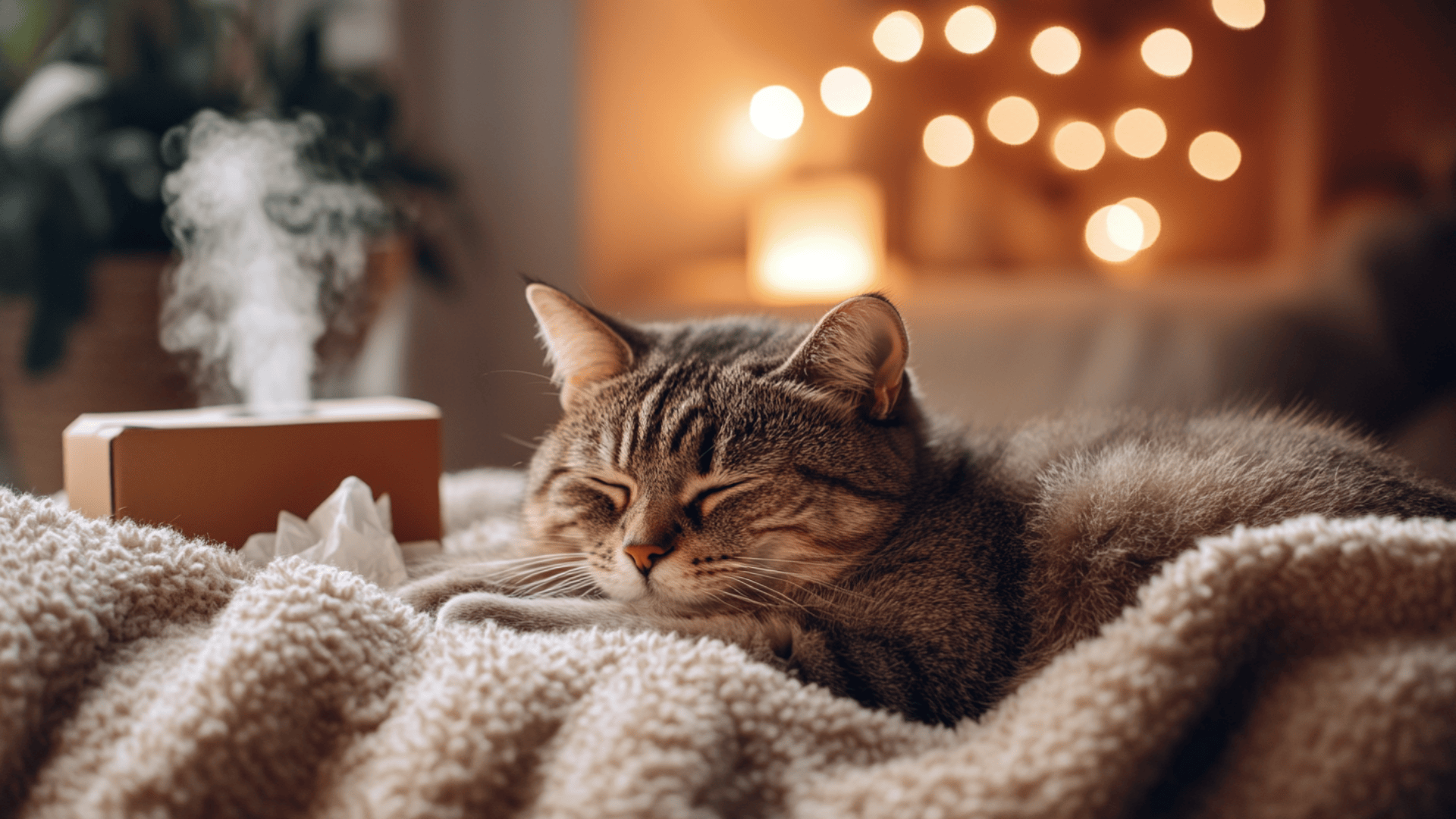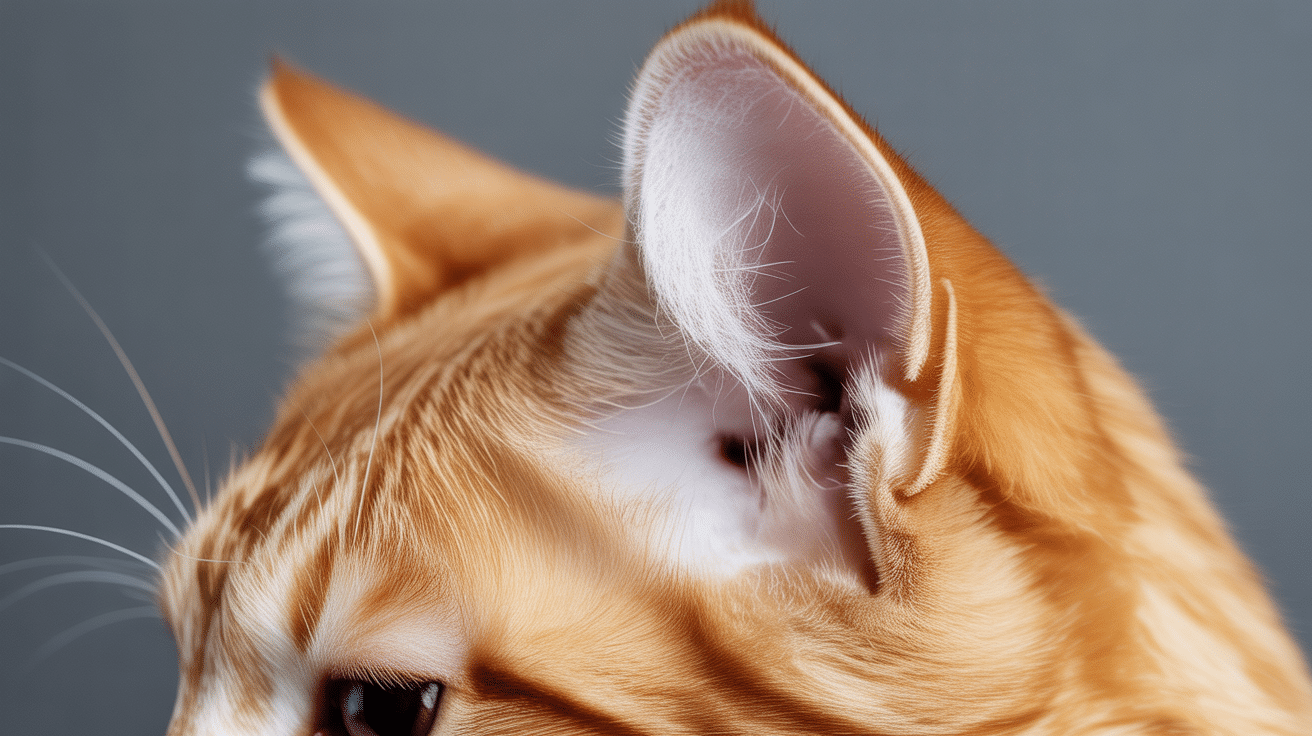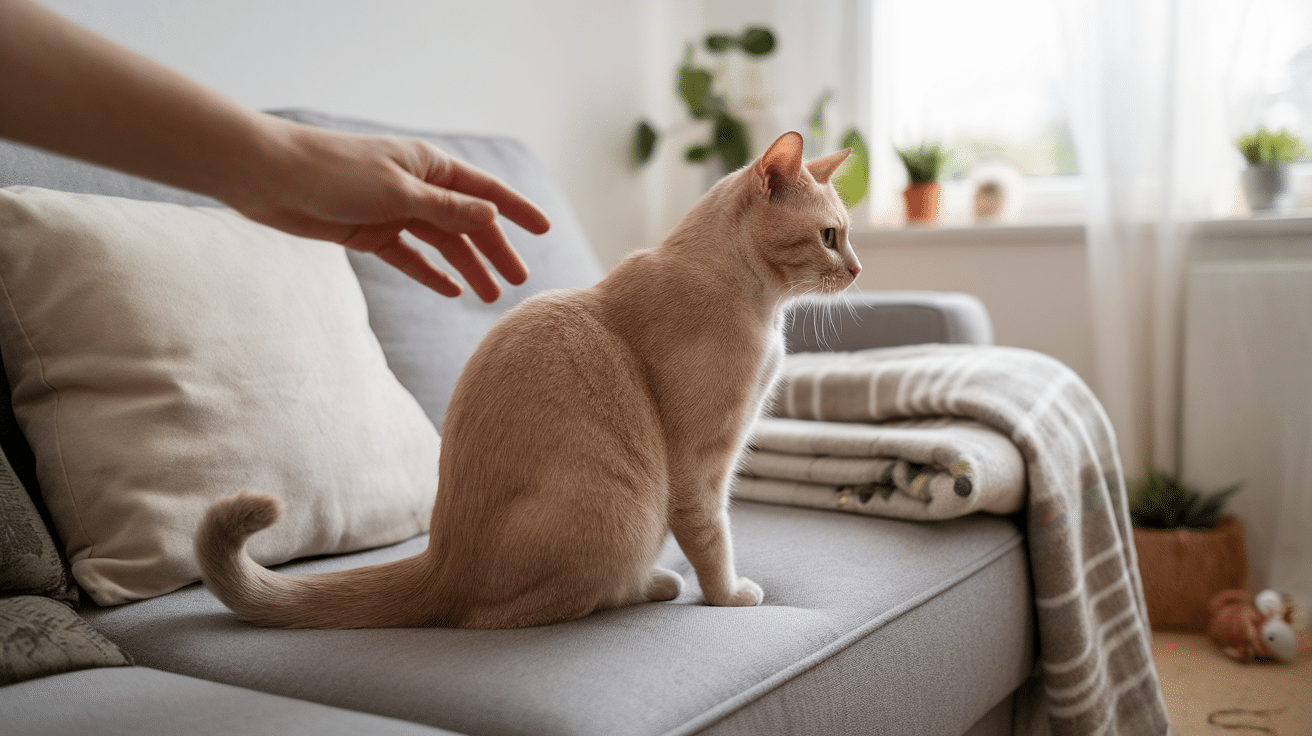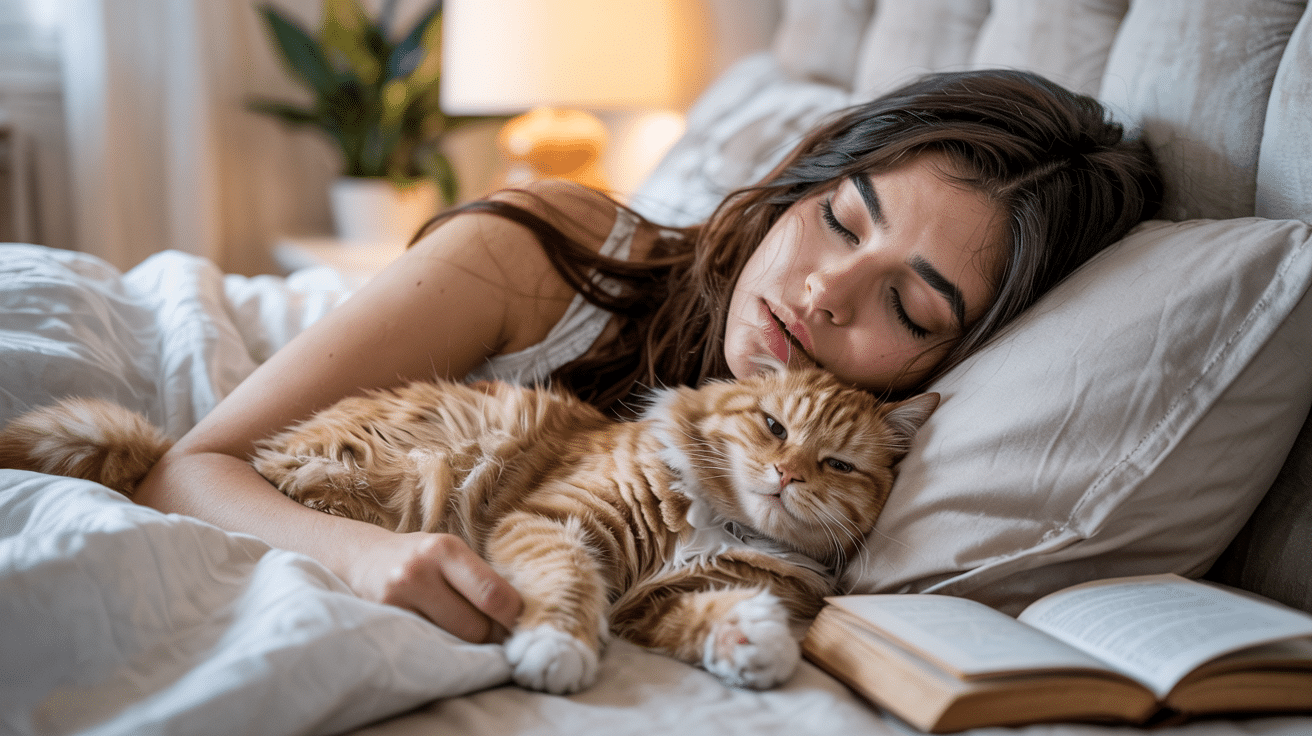Did you know that cats can catch colds just like we do? If your cat is sneezing, has watery eyes, or seems extra tired, you’re probably wondering what’s going on and what you can do to help.
It’s easy to feel worried when your pet isn’t acting like itself. That’s why this blog is here to walk you through how to treat a cat with a cold in a simple, stress-free way.
You’ll learn what signs to look for, how to make your cat more comfortable at home, when it’s time to call the vet, and what not to do.
By the end, you’ll feel more confident knowing how to care for your sick kitty. So, is your cat just sniffly, or something more serious? Let’s find out.
Signs Your Cat Might Have a Cold
Spotting symptoms early helps you act fast and give your cat the care they need.
Here are the most common signs to watch for:
- Sneezing and nasal discharge: Your cat may sneeze more often or have a runny nose with clear or cloudy mucus.
- Watery or crusty eyes: Tears or crust around the eyes can be a sign of irritation or infection.
- Mild coughing: A soft, dry cough may show up along with other cold symptoms.
- Decreased appetite: If your cat isn’t eating like usual, it could be due to a stuffy nose or feeling unwell.
- Lethargy or hiding behavior: Sick cats often sleep more and may hide to rest quietly.
If you notice any of these symptoms, keep an eye on them and start some basic home care.
Home Care for a Cat With a Cold
Most colds are mild and can be treated at home with the right care. These simple steps can help your cat feel better and recover more quickly.
Use a Humidifier or Steam
Adding moisture to the air can ease your cat’s breathing and reduce stuffiness.
- Place a humidifier where your cat sleeps to keep the air moist.
- Take them into the bathroom while you run a hot shower. The steam helps clear nasal passages.
Even short sessions of steam can make a big difference in your cat’s comfort.
Gently Clean Eyes and Nose
Colds can cause discharge around your cat’s eyes and nose.
- Use a warm, damp cloth or saline and gauze to wipe away any mucus.
- Clean daily to avoid buildup and irritation.
Gentle cleaning helps your cat breathe easier and prevents infections.
Keep Them Warm and Rested
Rest and warmth play a big role in recovery.
- Provide a soft, quiet spot away from busy areas where your cat can sleep.
- Avoid drafts and stress to help their body fight off the virus.
The more relaxed they are, the faster they may start to feel better.
Encourage Eating and Drinking
Cats with colds often lose interest in food or water, so a little encouragement helps.
- Offer warmed wet food or bone broth to tempt their appetite.
- Try hand-feeding or syringe-feeding if they’re not eating on their own.
- Monitor water intake closely to prevent dehydration.
Keeping your cat nourished and hydrated supports a quicker recovery.
When to Call the Vet
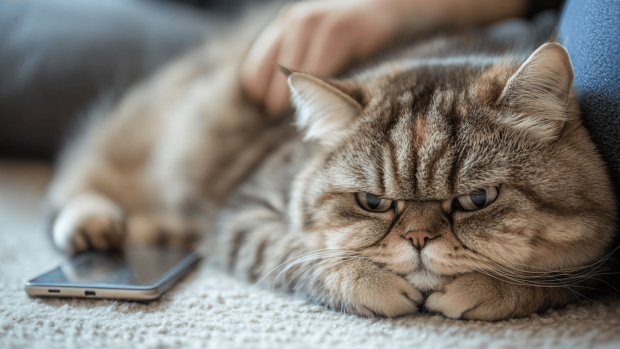
Most colds clear up on their own with home care, but there are times when your cat needs professional help.
If symptoms last more than 4 to 5 days with no signs of improvement, it’s time to contact your vet. A simple cold can turn into something more serious if left untreated.
Trouble breathing or wheezing is another red flag. If your cat is open-mouth breathing, breathing rapidly, or seems to be struggling, seek help right away.
Not eating or drinking at all for more than a day can lead to dehydration or other issues. Why won’t my cat drink water is a question many cat owners face, and it’s worth exploring if your kitty is turning away from their bowl.
Severe lethargy or signs of dehydration, like dry gums or sunken eyes, also call for a vet visit. These signs may point to something more than a cold.
Kittens, older cats, or those with ongoing health problems are more at risk and should see a vet sooner rather than later. Their immune systems aren’t as strong, so early care is important.
What You Should Not Do
Some well-meaning actions can be harmful when your cat has a cold. It’s just as important to know what not to do during their recovery.
- Don’t give human cold meds or painkillers. Many common medications are toxic to cats, even in small amounts. Always consult your veterinarian before administering any medication.
- Don’t ignore ongoing symptoms. If your cat isn’t getting better after a few days or if they seem worse, it’s time to call the vet.
- Don’t force-feed without consulting a veterinarian. If your cat isn’t eating, try gentle encouragement first. Forced food can sometimes do more harm than good.
- Avoid essential oils and strong-smelling cleaners. Cats are sensitive to smells. These products can irritate the nose and lungs, intensifying symptoms.
Being cautious with these things can help your cat recover safely and comfortably.
Preventing Future Colds
Reduce the chances of illness with good habits that support your cat’s health every day.
1. Keep stress low in multi-cat households. Tension between pets can weaken the immune system. Make sure each cat has their own space and resources.
2. Keep vaccinations up-to-date. Vaccines help protect your cat from common viruses that cause colds. Regular vet checkups make sure they stay current.
3. Clean litter boxes and bowls regularly. Dirty food and water bowls, or unclean litter boxes, can spread germs and stress your cat out.
4. Use air purifiers or reduce allergens. Cleaner air means less irritation for your cat’s nose and lungs. This is especially helpful for cats with allergies or asthma.
Simple routines like these can go a long way in keeping your cat healthy year-round.
Conclusion
Caring for a sick cat can feel stressful, but a little knowledge goes a long way. In this guide, we broke down how to treat a cat with a cold using simple steps you can follow at home.
You now know how to spot the signs, what comfort measures help, and when to call the vet. By paying attention and acting early, you can help your cat feel better faster and avoid more serious problems.
This information matters because your quick response makes a big difference in your pet’s recovery. Remember, never give human meds, and always watch for changes.
Want to learn more about keeping your cat healthy? Check out our other helpful posts for more simple, real-life pet care tips.
